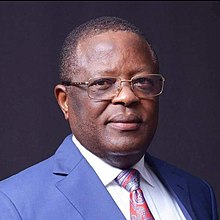 Civil Society Legislative Advocacy Centre, CISLAC Media Interaction On The NEITI Process In Nigeria, September 27, 2012
Civil Society Legislative Advocacy Centre, CISLAC Media Interaction On The NEITI Process In Nigeria, September 27, 2012
We in CISLAC have observed the events in the Nigeria Extractive Industry Transparency Initiative (NEITI) process in the recent times and as civil society stakeholders in the process, we wish to state as follows:
Observations
A. Delay in Constitution of the NEITI Board: We note with disappointment the delay by the President in constituting the NSWG. This is not good for the process and in our opinion suggests a lack of commitment by the federal government. We expected the government to be more proactive for smooth and seamless transition in the leadership of such a sensitive institution. The tenure of the last NEITI NSWG ended on January 28, 2012 and the new board was only inaugurated in August 22, 2012 with effect from August 14, 2012 creating a vacuum of about 8 months. This is not befitting for an agency saddled with the responsibility of ensuring Transparency and Accountability in such a crucial sector of our economy. The gaps created do not augur well. Considering the strategic oversight and policy directing role the NSWG plays over the NEITI Secretariat and process, this was inappropriate. It will be recalled that at some point the former Chairman of the Board Professor Asobie Assisi had to raise alarm that
the absence of a Board could be costly and result in the withdrawal of the Nigeria’s validation status. For instance, during an Induction programme for legislators in March 2012, several aspects of the NEITI Act were identified as requiring amendment. As at today, there has been no much progress in spite of the keen interest shown by the NASS. The main reason was the absence of the NSWG without which such crucial engagement could not be prosecuted. Such a
delay should be avoided in the future.
B. The new National Stakeholders Working Group, NSWG/NEITI Board: This, as constituted holds a promise for the NEITI Process. The Chairman of the new Board is a trained lawyer with civil society background and a history of struggle for social justice, equity and citizens’
welfare. The pedigree of several individuals on the Board provides an opportunity to deepen and strengthen the effectiveness of the NEITI. We particularly acknowledge that the appointment of the CSO representative reflects the position previously canvassed by Civil Society. CISLAC had been in the forefront of advocating for a CSO representative with legitimacy that can be held accountable to the CSO community. The appointment of the Chairperson of the PWYP (Nigeria) coalition is therefore a welcome development and aligns with international best practices. There are also several members with rich civil society antecedents. The NEITI process is globally CSO-driven and we expect the new Board to lead up to expectations by being assertive and demonstrating commitment while being above board in all their dealings.
Urgent Priorities for the new National Stakeholders Working Group
1. Remediation: The 2006-2008 NEITI Audit Report is the third to be released. While we acknowledge the existence of a remediation plan and an inter-ministerial task team, IMTT saddled with the responsibility of implementing remediation action arising from the Audits, we
must state that the effects of this are yet to be felt. Among recurrent issues in the NEITI Audit:
· there is still no metering system to measure the actual quantity of resources extracted from our country;
· the accounting and audit systems in most of our agencies still fall below international standards
· non-cooperation from some stakeholders and inconsistent and inaccurate data is still recurrent. These include Covered Entities PHCN, DPR, PPMC;
· there are still inefficiency, incapacity, lack of interface and deficiency in the systems and procedures between NNPC, CBN and the OAGF resulting in information gaps and lack of control in financial data collection and reporting;
· the system for recording the movement of refined products through the PPMC Pipeline system remains paper-based; subject to error and therefore outdated and short of international best practice;
· there is still widespread capacity deficit on the part of personnel of several government agencies with strategic roles in the process;
· the uncertainty surrounding the clear interpretation of the applicable fiscal regimes contained in some MoUs between the NNPC and some oil firms remain unresolved resulting in huge disparities in revenue computations accruing to the government.
Remediation is the essence of the Audit Reports that cost millions in tax payers’ money and recurrent unattended redial issues amount to a waste of public funds. It is not enough to have information if they cannot be used to change the situation on ground in a manner that will enhance the welfare of citizens. We call on the NASS and the Auditor-general the IMTT to step up action for full implementation of remediation action plans.
3. Revenue Leakages: Major fallout of lack of remediation, weak institutions, lack of capacity, and poor coordination from regulatory agencies is the continuous loss of revenue accruable to the
government from the extractive sectors. For instance, there were discrepancies between payments made by companies and receipts by government including the annual PPT returns and annual Financial Statement due to DPR’s lack of accurate database on oil licences issued to prospective investors in the industry resulting in underassessment in the determination of PPT value. Furthermore, International Oil Companies continue to devise means of manipulating these and unclear fiscal regimes to indulge in tax evasion, tax avoidance, thin capitalization, transfer pricing and profit shifting to tax havens. The NASS must align with global trends towards country-by-country reporting to making laws that increase the transparency in financial reporting and eliminate financial secrecy
2. Enforcement and Sanctions:We reiterate that the provisions for sanctions in the NEITI Act are weak and cannot deter prospective defaulters.
This has greatly reduced NEITI’s ability to effectively police the process. We call on the NASS to expedite the process of amending relevant sections of the Act as appropriate. Some of the remedial issues like non cooperation are recurrent because of the culture of impunity. Since inception, the NEITI Secretariat has been reluctant in enforcing the limited sanctions in accordance with Section 16 of its enabling Act. The preference has been for persuasion and
appeal. This has not yielded results 5 years and 3 Audits after. It is time for the NSWG to invoke the law and prosecute offending parties and sanction them accordingly. Although the penalties are presently inadequate, while we consider amending the Act, let the current law run its full course. The NEITI must no longer be viewed as a toothless bulldog.
3. NEITI Reports: We note and commend the efforts of the NEITI Secretariat to clear the backlog of Audit Reports. We are aware that work on the 2009-2011 Audits has reached an advanced (reconciliation) stage. We call on the new NSWG to ensure that the Audit Report for 2012 is timely and by the year 2013, Nigerians can take Audit reports by the statutory time June of every year for granted. Also the NEITI Act 2007 mandates the NEITI Board prepare and
submit to the President and the National Assembly, not later that 30th September of every year, a report of its activities during the immediate preceding year and its budget for the succeeding year. We wonder where we are on this. Meanwhile, beyond the timely preparation of audit reports, is the need to simplify them and devise creative ways of effectively disseminating them for citizens to use for engagement in demanding for accountability and remediation. The Board
should also pursue effective decentralization of NEITI implementation to state and local government levels.
4. Institutional accountability: there is increasing need for the NEITI secretariat as an institution to scale up the conduct its affairs in transparent ways. Issues surrounding key activities like the procurement system and processes have in the past generated avoidable dust. The new Board should ensure that strict compliance with procurement and other relevant laws are adhered
as the searchlight of Nigerians are now beamed on NEITI as an institution to evaluate if it measures up to best practices of transparency and accountability in the conduct of its internal affairs.
5. Poor Legislative Oversight: The NASS is expected by law to receive audit and activity reports from the NEITI and related comments from the Auditor-General for debates and resolution that will translate into remediation and increased compliance. In spite of three Audit Reports, the NASS has neither ever tabled such reports nor debated them. This is disservice to
the process and the Nigerian People. We consider the excuse by the NASS that the Auditor-General has never submitted his own Report unacceptable as even that office is subject to legislative oversight and can be made to perform. We call on the NASS to strengthen her oversight over this process in the interest of the Nigerian People.
Related Issues
1. The PIB: the PIB will be strategic to strengthening the NEITI process. We note with concern that the Bills presently presented contains provisions that that negate the principles of transparency and accountability. CISLAC concerns include among others;
· The confidentiality clauses;
· concessions for the concealment of information,
· high concentration of discretion and powers to the Minister for Petroleum and
· weak sanction component creates room for undue centralization and discretion, diminishes access to information and by extension, transparency and accountability
We call on the NASS to critically examine the Bill in the light of national interest, devise an effective mechanism for harvesting the input of critical stakeholders and ensuring the passage of a people-oriented law that will strengthen the gains of transparency so far recorded in the sector and effectively overturn the trend of the scandalous and monumental level of corruption we have experienced in the recent past.
2. Probes: in the recent past, Nigerians were treated several incidences of unprecedented fraud in the downstream sector, of alarming, equally unusual amounts and time were spent on probes. Reports were released, individuals and firms indicted but none is yet to be effectively tried and punished. We call on the anti corruption agencies to proceed with investigations and try culpable offenders while ensuring that illegally acquired funds are returned to the national coffers
Finally we thank Pact-Nigeria for partnering with CISLAC .
Auwal
Ibrahim Musa(Rafsanjani)
Executive
Director, CISLAC
AUWAL IBRAHIM MUSA (RAFSANJANI)
Executive Director



